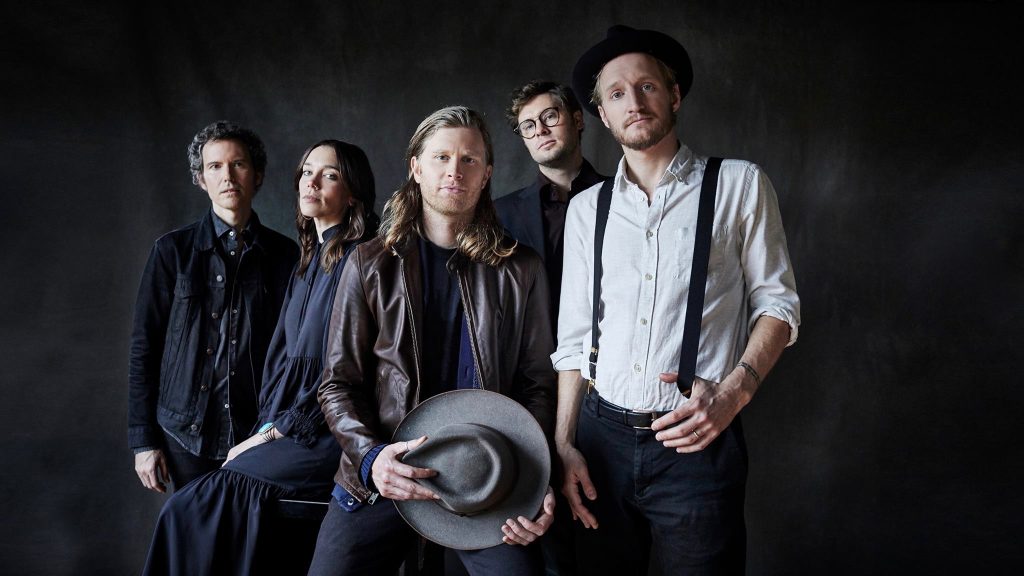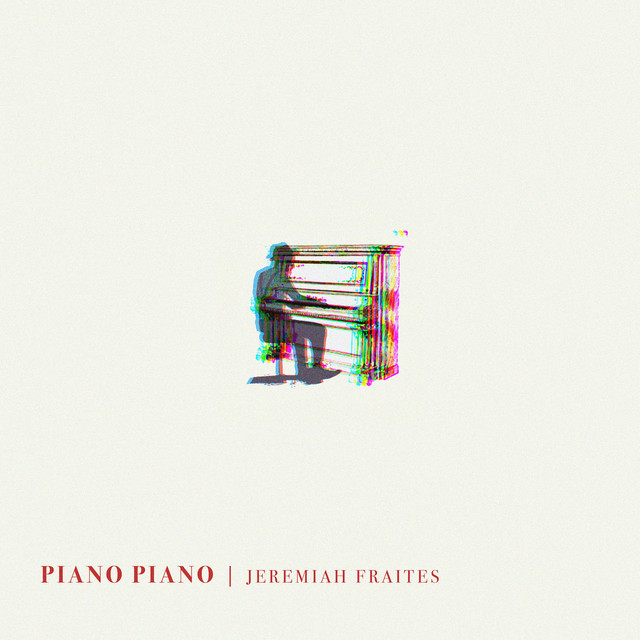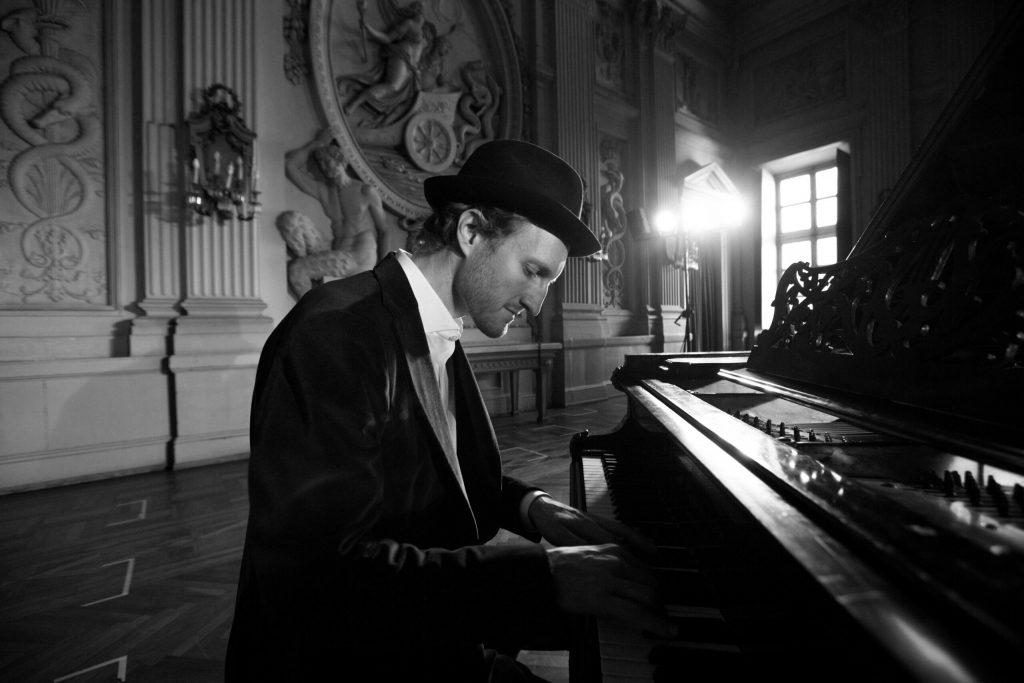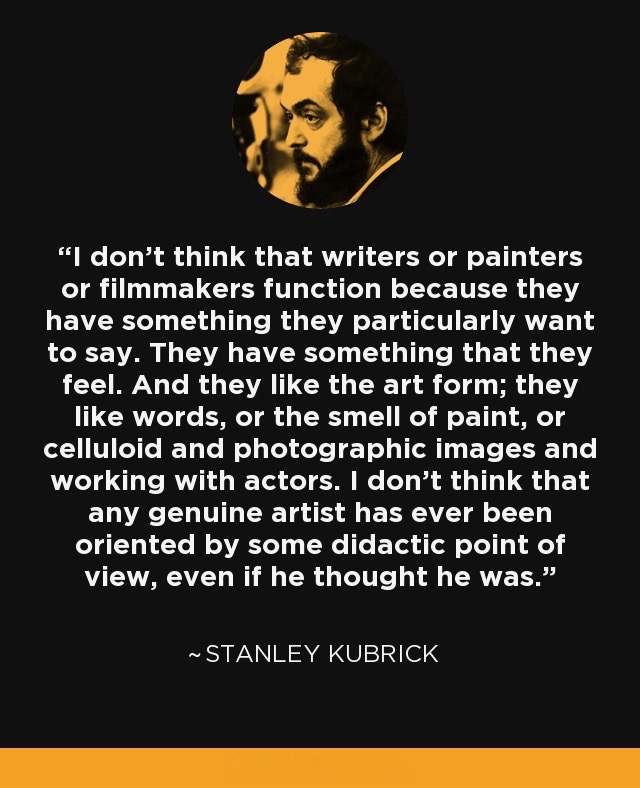As a founding member of the much loved American folk/rock band The Lumineers, singer, songwriter and multi-instrumentalist Jeremiah Fraites has spent the last two decades of his life making music, travelling the world and releasing timeless, iridescent songs that have serendipitously woven themselves into the fabric of our being, to become the soundtrack of our lives.

Despite having first met as youngsters growing up in Ramsey, New Jersey, Jeremiah Fraites and Wesley Schultz found themselves forming a much deeper kinship as teenagers, following a shared personal tragedy, that would ultimately go on to form the foundations of their future. United in their feelings of sorrow and grief, the pair began collaborating with one another musically, writing lyrics, recording songs and playing live gigs in small clubs and at open mic nights in and around New York City, before relocating to Denver in 2009 to further pursue their musical dreams and ambitions.
It was whilst living in the Colorado capital, that the duo became acquainted with classically trained musician, Neyla Pekarek who had responded to an ad placed on Craigslist by both Fraites and Schultz, who at the time were looking for a cellist to join their band, now known as The Lumineers.
Following the release and subsequent success of their 2011 EP, which saw them secure a management deal and move to Seattle to work with esteemed record producer Ryan Hadlock (Gossip, The Strokes, The Foo Fighters), it wasn’t long before the group hit the big time, with their breakthrough hit Ho Hey catapulting them onto the world stage ahead of the launch of their critically-acclaimed, self-titled debut album in 2012.
The Lumineers – Ho Hey (Official Video)
Reflecting on that period of his life, Jeremiah says: “I remember at the time of that albums release, somebody saying to me ‘I think this record is going to really speak to people and they’re going to relate and remember it in a way that stays with them for a very long time.’ And honestly, I really think that’s what happened and that’s why it (the album) did so well because it did resonate with a lot of people, and speak to them during some pretty big moments in their lives. Which is an incredible thing for a musician to achieve, because I know for me when I was growing up Coldplay’s first album ‘Parachutes’ was a body of work that just blew my mind, and it became the soundtrack to that whole period of my life – those songs and that music is so beautifully connected to those moments and those life experiences – so for us to have been able to make music that did that for other people, is an incredible feeling.”
It’s that love of music, and joy at creating tangible, visceral connections with people of all ages, around the world, that inspired Fraites to branch out from the comfort and security of the band, to record his debut solo album…
Piano, Piano.

Made up of 11 superlative instrumental songs, some of which have been in the works for the better part of a decade, Piano Piano sees Jeremiah Fraites bare his soul to produce an achingly gorgeous, transcendent body of work that features an array of breathtakingly beautiful, intimate piano-centric tracks that perfectly showcase his talents as an accomplished musician, and formidable songwriter, and producer.
Co-produced and engineered by David Baron (Jade Bird, Vance Joy, Shawn Mendes) and featuring collaborations with The Lumineers’ violinist Lauren Jacobson, cellists Rubin Kodheli and Alex Waterman, and Macedonia’s 40-piece FAME’S Orchestra, the record uncovers a side to Jeremiah that some fans may not have seen before, as he reaches deep into depths of his heart to produce a symphony of music that’s filled with optimism, hope and healing.
Offering his take on the idea and inspiration behind creating a purely instrumental album, Fraites says profoundly: “I love the idea of communicating with people through music alone, which can sometimes say more than words ever could…”
Jeremiah Fraites – Maggie (Live Performance)
Departure…
As his first furore into the industry as a solo artist, releasing an album that marks a significant shift in direction and sound from previous musical releases with The Lumineers, we imagine going it alone after all those years of being in a group, must have been a pretty daunting prospect for the charismatic performer…
“I can’t lie, there was definitely this strong, superstitious part of me that wanted to wait until 2020 was over to release the album…” Jeremiah laughs. “Because lets be honest, it was a really terrible year for a lot of people wasn’t it? But putting my own personal nerves and feelings of trepidation aside, I liked the idea of coming into the new year, on a fresh start, and putting out new music for everyone to hear to mark a kind of new beginning for all of us.”
Nearly two months on from Piano, Piano’s official unveiling, we wonder how those feelings have changed in the weeks since the albums release.
“Honestly, when I look back now… and I know it wasn’t that long ago (laughs) I think that more than anything, I was just really curious to see what people thought of it (the album) as a whole body of work, because as you say, it is something really different for me, and when you do something completely different to what you’re primarily known for, it’s always interesting to get people’s feedback. But now that it’s finally out, I’m really thrilled with the response to it!”
Explaining his thought process further, Fraites adds: “And I say ‘finally out’ because as a musician, a lot of the time when you’re finished making an album, it can feel like you’re almost sitting on a secret, waiting forever to share what you’ve been working on with your audience. Songs aren’t just written and then released right away, they have to be properly produced, then mixed and mastered, so there’s usually a two to three month period where you’re just waiting for it to come out. But it’s cool, it’s what we do as artists, it’s all part of the fun (laughs).”
“I liked the idea of coming into the new year, on a fresh start, and putting out new music for everyone to hear to mark a kind of new beginning for all of us.”
Jeremiah on his choice of timing in releasing ‘Piano, Piano’.
Dreams.
Working as an individual for the first time in a number of years, has clearly afforded Fraites the creative freedom to express himself in a whole new way, as he wholeheartedly embraces his musical past to channel all that he’s learnt as an artist and performer into an album that serves to help heal the human soul.
“I actually had a really strong vision for this record, for both how I wanted it to sound and how I wanted to present it to the world.” Jeremiah says. “In the very beginning I wrote down a list of goals that I wanted to achieve with regards to the musicality and the overall production of the tracks – it was kind of like my very own manifesto or mission statement if you like, and it went something like… number 1, don’t add too many strings! Number 2, keep it raw and vulnerable! Number 3, don’t add too many strings (laughs).”
Who doesn’t love the combined sounds of classical piano and orchestral strings though we ask? “Oh don’t get me wrong, I love the sound of those two instruments being played together, but I really wanted to stay away from doing anything that sounded too traditional, you know? It would have been really easy for me to make an album that just relied on the combination of those two musical devices, because they sound and work so beautifully together don’t they? But this time around, I wanted to almost catch people off guard, and chose specific moments within the album to purposefully use the two, so that the strings would keep their potency and serve the emotion I was trying to convey in certain songs.”
As we listen to Jeremiah speak and outline his artistic and musical vision for the album, it’s evident that this is a project he’s waited a long time to make.
“I’ve had a lot of these songs, stored away in the vault for years.” he admits. “There’s a track on the album called ‘Nearsighted’ that features a really strong guitar riff, that I actually recorded about 14 years ago whilst I was studying abroad in Kingston upon Thames in London. I can remember the moment so well, I’d come back from the pub late one night, opened up my laptop and just started to play around on my guitar. And I liked the sound of this one particular riff so I recorded it, and stored it away. Fast forward to me making this record and I knew I had to include it in this song, so the actual riff you hear on the album, is that exact same take that I recorded back in Kingston, all those years ago… it’s those little touches that make the album so special to me.”

Continuing to detail the ways in which he created some of the tracks on the album, Jeremiah says: “I sifted through probably around a couple of hundred voice memos in a dropbox folder online, and tried to pick out the ones that I thought were the best fit for what I was trying to achieve in terms of the overall sound for this project. Some of the clips sounded like they’d make a great chorus, or a really powerful opening verse, then I’d discover a chord progression that would help me to create a certain hook or melody, and so it was a case of me then just mixing and matching different sequences, from different points in time, and piecing them together to create some of the songs you hear today. It was a really thorougher process, almost like a sort of experiment, and at times it was difficult to create the exact sound I wanted, but I had a lot of fun doing it and I’m really proud of how it turned out.”
And whilst getting the sound right was high on his list of prerequisites when making his debut solo album, it was equally important to Fraites to capture and convey to fans the meaning and feeling behind the music.
“When someone listens to the album, whether that be on big speakers or on their headphones whilst out taking a walk, I really want them to feel like they are right there with me, sitting on the piano bench next to me as I play – I wanted it to have that kind of raw intimacy to it. But on the flip side to that, I also wanted there to be moments where they would feel almost bowled over by this world class production and these glorious, musical arrangements that have been created – I wanted to flirt between those two ideas and I think, I hope, I achieved that.”
And so, with the musical side of proceedings taken care of, the next hurdle for Jeremiah to overcome was to find a way to compose orchestrations that would connect with audiences, without having to rely on song lyrics or any spoken words…
Jeremiah Fraites – Nearsighted (Visualiser)
The beauty in how Fraites new music resonates so deeply with listeners is by the way in which he has carefully and purposefully engineered the music, with the melodies on Piano, Piano becoming actual lyrics themselves.
As an artist used to composing and structuring more traditional styles of pop/rock and folk songs, that incorporate conversational verses, killer bridges, sing-along choruses and glorious middle 8’s, we wonder was it a major challenge or more of a liberating experience for Jeremiah to not have to put pen to paper to create lyrical stories to accompany the tracks on Piano, Piano?
“You know, it was liberating in a way but at the same time, it was also somewhat of a challenge for me too, because I knew I had to make the music sound interesting enough to fill the spaces within a song where you’d usually hear words.” the 35-year-old concedes. “It threw up many questions, like was I going to solely rely on the sound of the piano itself and let that be the central focus, or would it be a case of using certain chord sequences or string arrangements to bring the song to life in the same way that lyrics normally would do? It gave me a lot to think about, and it did, at times, present itself as one big, beautiful challenge (laughs). But it was a challenged I welcomed and enjoyed because it was something really new to me, and I think it’s helped me to grow as an artist and become a better musician.”
Recalling a conversation he had with his Mother earlier this year, Jeremiah reveals it was in fact the family matriarch herself who came up with the best way to explain the sentiment behind the album: “My Mum called me the other day and she said, ‘sweetheart, I’ve been listening to your album and I really love it – it’s like poetry without words’ and I thought that was a really cool way to describe the kind of album I’ve created.”
“When someone listens to this album, whether that be on big speakers or on their headphones whilst out taking a walk, I really want them to feel like they are right there with me, sitting on the piano bench next to me as I play.”
Jeremiah on his hopes of creating an intimate connection with listeners hearing “Piano, Piano” for the first time.
…Arrival.

As our time with Jeremiah comes to an end, we can’t help but ask, what exactly is it about the piano in particular that he loves so much? And what was it that inspired him to make an album that serves as an open love letter of sorts, to the universally loved musical instrument?
“Oh man… that’s a big question (laughs). Look as much as I love the idea that someone will listen to this album, and somehow be inspired by it… I’ve gotta say, the bottom line is, I just love the piano! I love the sound, I love experimenting with chords and creating new melodies, I love the shapes my hands make as I play and touch the keys… it’s the most beautiful instrument in the world.”
“When I was growing up there was this quote I once saw by the director Stanley Kubrick, that really resonated and inspired me. He said something like artists, painters, creatives don’t do what they do because they necessarily have something to say, they do it because of how it makes them feel – they get this unexplainable love and joy from making art, and that’s exactly how I feel about my career, and what I’m lucky enough to be able to do for a living.”

Reflecting on his life today, the state of the world and as for his hopes for Piano, Piano and what it will mean to fans around the world, Jeremiah says thoughtfully: “If you look back at 2020, it was A LOT wasn’t it? It was a hard time for everybody, because everyday it seemed like we were all just hit relentlessly by one thing after another, after another… But we have to try to look forward now, and whilst medicine and vaccines will help people to ‘get better’, I really feel like music is the one thing that can really save a person. So as much as I don’t want to be too dramatic, or get get too deep into things, if this album can provide that little bit of escapism, healing and hope for people moving forward towards a brighter future; then that would make me really happy.”

